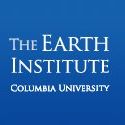Columbia Water Center Receives a 3-year Grant from Norges Bank to Study Water Risk in the Mining Industry
Published 01-08-15
Submitted by The Earth Institute at Columbia University
The Columbia Water Center, a center of the Earth Institute at Columbia University, announced today that it has received a 3-year grant from Norges Bank to develop a modeling platform to quantitatively assess mining-related water and environmental risks and their financial implications. For the initial phase of the project, the Center’s research team will focus on water-related exposure for the mining of copper and gold.
The Columbia Water Center’s new modeling platform will allow investors access to targeted analyses of water-related mining risk, with a high level of specificity related to type of mining operation, geophysical and socio-political setting, remediation and mitigation needs, financial implications of particular asset risks on the broader company portfolio, and causal connections between risk factors and financial performance. A comprehensive database will be developed as part of the project to support these analyses. Norges Bank has initiated and actively supports this academic research project to increase understanding of environmental risks and their financial implications as part of its responsible investment strategy.
Columbia Water Center Director Upmanu Lall, said that, “In a world facing increasing water scarcity and droughts, many industries face operating risks that are emerging as threats to license to operate and also financial performance.” The mineral extraction industry in particular faces the dual challenge of rising water management costs and growing public scrutiny of the often-irreversible effects of mining on local land and water resources. Awareness of these risks has led to a growing desire from industry leaders to better assess and manage water resources; unfortunately, existing tools, while useful for a general comparison of companies and locations, are inadequate for detailed, asset-level risk assessment and management.
Researchers will develop statistical modeling tools to address elements of specific risks, including: meeting water requirements for mineral processing, energy production and community needs; treatment and disposal and re-use of wastewater; mine dewatering operations; and addressing accidents and spills. The model will also address water allocation, trading, regulation and related governance issues.
The model will be developed using data-rich settings in the USA, Canada and Australia. By limiting the data used to make predictions in specific locations, the research team hopes to cross-validate performance to test the application of the models to settings where data is less abundant. Applications will then be tested in other regions such as South Africa, Chile and Peru, where geophysical and mining conditions are similar but where data might not be as readily available and where there may be differences in economics, governance and other site factors. Portfolio risk analysis tools are also being developed for the analysis of financial risk at the asset, company and regional levels.
The data and models being developed are open source and, subject to restrictions from the data providers, will be available to mining companies seeking to assess, manage and mitigate a broad range of environmentally induced financial risks. Other targeted users include financial analysts, mining companies, government regulators, NGOs and academics. Professor Lall invites input into the project from the financial and the mining industry.
Columbia Water Center Director Upmanu Lall is the principal investigator on the grant. Additional researchers on the project are Garud Iyengar and Jose H. Blanchet, professor and associate professor in Columbia University’s Department of Industrial Engineering and Operations Research, and Sophie Thomashausen, legal researcher for the Columbia Center on Sustainable Development.

The Earth Institute at Columbia University
The Earth Institute at Columbia University
By blending scientific research, education and practical solutions, The Earth Institute at Columbia University, is working to help guide the world onto a path toward sustainability.
Under the direction of Professor Jeffrey D. Sachs, comprises more than 30 research centers and some 850 scientists, postdoctoral fellows, staff and students. Our experts work hand-in-hand with corporations, government agencies, and individuals to create solutions for problems in public health, energy, ecosystems, climate, natural hazards and urbanization.

